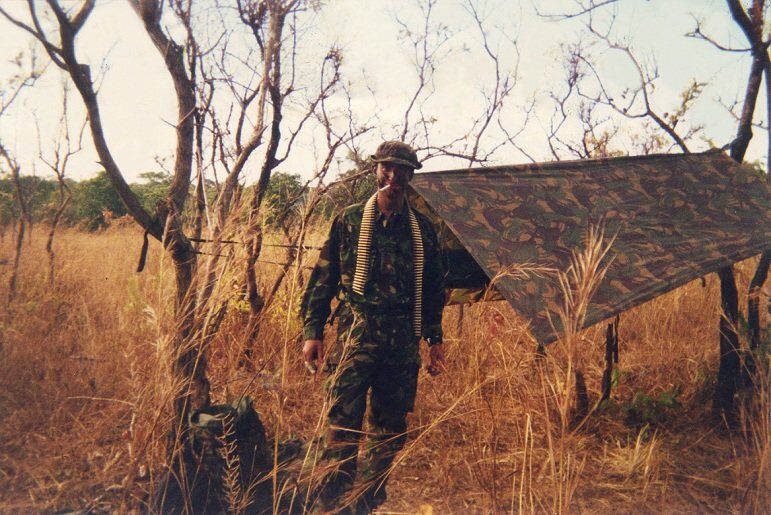This analysis is set in the context of significant global change: rapidly evolving technology, communication and media, economic turbulence and socio-political struggle for position, identity and purpose. Indeed, it has been argued that the fabric of human society is evolving faster than the humans who live within it. These shifting sands are having a direct effect upon military thinking and contemporary military operations. Although the nature of conflict remains unchanged and the same issues are still present, the character of conflict, challenges for commanders and methods of fighting are undoubtedly evolving at a similar pace. Despite countless publications, reviews, assessments and amendments, lessons have not yet been fully integrated or understood. This paper posits that codification and organisation of process, roles and responsibilities is the missing link, not a lack of ‘good ideas’.
“This (doctrine) may be “new”; however, it’s not as if we have not always sought to do just this! And, of course, a comprehensive civ-mil COIN campaign strives to do this through the numerous elements pursued simultaneously… Again, old wine in new bottles! And, in truth, such academic concepts aren’t as useful on the battlefield as they seem to me. Generally, they capture very broad concepts that always have to be tailored to specific circumstance… We didn’t develop modern land doctrine; we did codify COIN campaign approaches.” Gen (Retd.) Petraeus - personal interview 2015.
The time of bipolar conflict has past. Whether facing multiple enemies or fighting alongside multiple coalition partners or facing a multi-dimensional contested space with a myriad of target sets, military practitioners have an increasingly complex task. A constant theme highlighted in recent conflicts is the lack of a coherent strategy with a clear end state. This responsibility sits at the political level and it could be argued that no military action will be successful without it or the resources, time and freedom of mission command to achieve it.
The cost, finite resources, limited time and potentially fickle public opinion force the modern army to ‘box clever’ and plan to the finish. Defeating an enemy formation is no longer an acceptable measure of success. Center of Gravity (CoG) analysis is essential to inform the successful employment of the spectrum of capabilities available to a 21st century interagency taskforce. As the operating environment is become more complex and multi-layered, the traditional view of an enemy CoG has evolved accordingly to encompass a far broader range of considerations and possibilities. In addition, it is accepted that one or more CoGs may be succeeded by a second or third layer of emergent CoGs when the situation changes.
The intangible CoG concept sits at the heart of the modern planning process. It is the most likely and the most dangerous CoG to consider for future contingency operations which will not end simply, but rather will evolve into one or more subsequent operational scenarios from Counter-Terrorism and Counter-Insurgency, through to Peace Enforcement, complex Military Aid to Civilian Authorities or Humanitarian Aid and Disaster Relief. It is understood that the intangible CoG can, and will, change; and that it is almost certain to comprise numerous players from the actors, audiences, enemies and adversaries target sets. However, the question remains whether a broadly defined, overarching CoG is preferable to a multiple CoGs or ‘sub-CoG(s)’ option.
The execution of land component integrated action at the ‘high tactical’ level and below, begins with the comprehensive approach to strategic campaign planning at the mil-pol interface. Whilst the flexibility and means to deliver integrated effects become both more specific and scarcer further down the hierarchy, the intended outcome must remain the same and the requirement for careful sequencing is equally critical. For that reason, the addition of an “action fusion filter cell” is recommended to facilitate not only the iterative understanding process, but principally, the prioritisation and synchronisation of integrated action effect delivery. In addition, this cell will assess and evaluate success based off a metric of 1st, 2nd and 3rd order effect on target(s). Subject to analysis, this information will provide the intelligent classification of those element comprising the intangible CoG – thus it can be considered as a ‘system of CoGs’ which are constantly changing like planets in a galaxy with a specific gravitational relationship to each other.

Interesting stuff. Had never heard of Center of Gravity analysis before.
It's always quite chilling when you hear people talk about war like it's game.
Keep up the goof work. Followed.
Downvoting a post can decrease pending rewards and make it less visible. Common reasons:
Submit
Thanks for your comment, I appreciate your perspective. I’ve served on four very different operational tours so far and certainly do not regard war as a game. However, in my current role, being emotionally detached is critical to effectiveness. This does not mean that you abrogate your responsibility or diminish your respect for morality or human life. It simply serves to enable you to speed up your analysis, accuracy and decision making process. Hope that makes sense?
Downvoting a post can decrease pending rewards and make it less visible. Common reasons:
Submit
Yes, it sure does. Thanks for clarifying.
Im personally against war, but I am very much interested in geopolitics, so I'm looking forward to learning a lot from you in the future even though we may not agree on certain things.
Thanks
Downvoting a post can decrease pending rewards and make it less visible. Common reasons:
Submit
Hoping that we can learn something from each other.
Best,
Nickythecat
Downvoting a post can decrease pending rewards and make it less visible. Common reasons:
Submit
Well written, good job.
Downvoting a post can decrease pending rewards and make it less visible. Common reasons:
Submit
Thanks for reading!
Downvoting a post can decrease pending rewards and make it less visible. Common reasons:
Submit